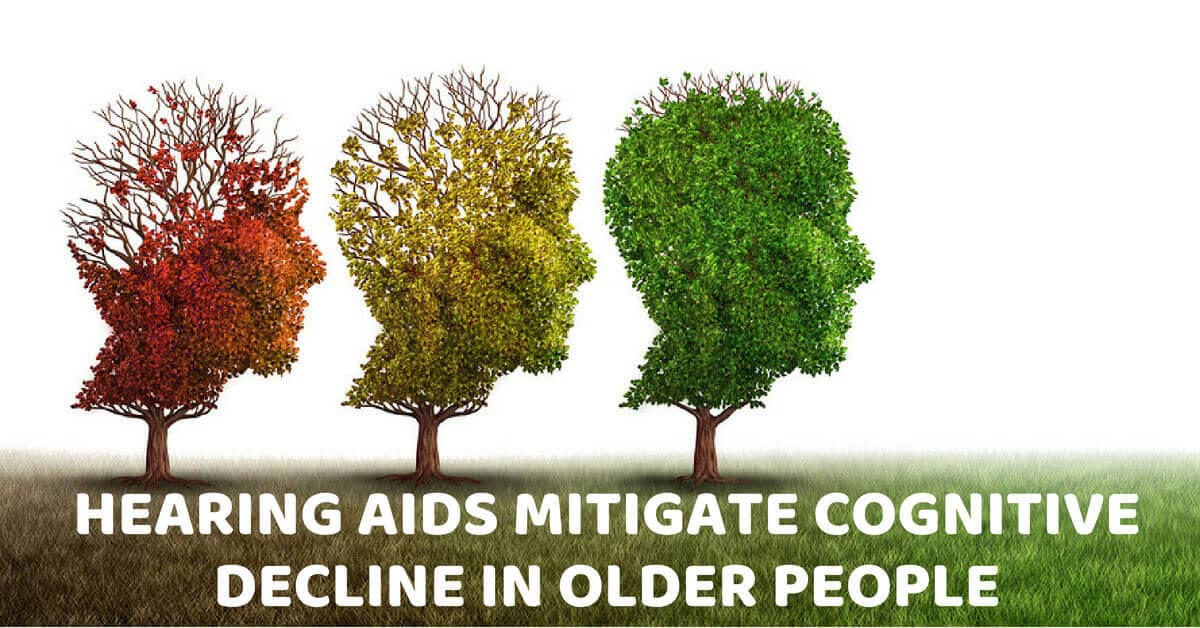Struggling with hearing loss is no joke but misunderstanding what’s being said isn’t the worst of it. Living with untreated hearing loss leads to a host of other negative health outcomes, like stress, social isolation, depression, and a greater risk of slips and falls. A number of recent studies have linked hearing loss with rapid cognitive decline and memory loss in seniors.
The Side Effects of Hearing Loss
Most people think that hearing loss isn’t a very big deal. Sure, you miss a few words now and then, but that’s just a normal part of aging, right? While we might think hearing loss is normal, living with untreated hearing loss could be the biggest mistake of your life. Not only does hearing loss lead to a breakdown in communication and jeopardizes your relationships, but when you have to ask someone to repeat themselves three times over, everyone gets frustrated, and it’s not long before you give up on communicating all together. You choose to stay home from social events, and face social isolation and loneliness.
When you struggle to hear, you’re also putting your job at risk. You can’t communicate effectively with your boss or your coworkers, and hearing loss can interfere with your ability to perform your job well. It might even become a safety issue if you can’t hear warning bells, or someone shouting at your from across the room. Those with hearing loss also experience a lot more accidents and falls and end up in the hospital more often than those who treat their hearing loss.
Hearing Loss and the Brain
If that wasn’t enough, hearing loss also has a huge impact on the brain. In one of the most tragic cases of use it or lose it, living with untreated hearing loss leads to rapid cognitive decline. The more sounds you lose, the more areas of the brain aren’t receiving stimulation. Slowly, these areas start to deteriorate, and don’t ever regenerate. Those with hearing loss have far less grey matter in their brains than their hearing peers and continuing to live with hearing loss leads to further declines. Losing your hearing has some dire consequences.
Another study tracked cognitive abilities such as memory, concentration, and planning skills in nearly 2,000 adults over the age of 50. After just 6 years, those who started the study with severe hearing loss were 24% more likely to have experienced significant cognitive decline! Having untreated hearing loss sped up cognitive decline, and the worse your hearing loss is, the more rapid decline you’ll experience. This puts those with hearing loss at a far greater risk of developing dementia or Alzheimer’s disease.
How Hearing Aids Can Help
The good news is that treating hearing loss changes your cognitive outcomes. You’ll never be able to fully restore the hearing you lost, but if you treat your hearing loss early, you will keep your brain healthy. A study by Isabelle Mosnier of Assistance Publique-Hopitaux de Paris in France, shows just what hearing aids can do. They studied 94 seniors with hearing loss, and after one year of hearing loss treatment, including a cochlear implant and auditory rehabilitation, 80% of the seniors scored higher on cognitive tasks than before!
Another study showed just what hearing aids can do. The study used data from the Health and Retirement Study, an 18-year project that measured cognitive performance of adults 50 years or older. They took hearing and cognitive measurements 9 times between 1996 to 2014 and found that seniors who wore hearing aids had better cognitive abilities and less cognitive decline than those who didn’t treat their hearing loss.
Helping You Help Your Brain
If you have hearing loss, the best thing you can do for your brain is to get hearing aids. Not only will you be treating your hearing loss, easily following conversations, and maintaining healthy relationships, you’ll also be keeping your brain active and healthy, and avoiding rapid cognitive decline. To protect yourself against the risk of early onset dementia, and keep your wits sharp, visit us at the nearest My Hearing Centers location to talk about your options to achieve maximum hearing health. Less than 20% of those who need hearing aids actually wear them. Don’t waste another day – let us help you help you keep your brain healthy, and your ears sharp.


